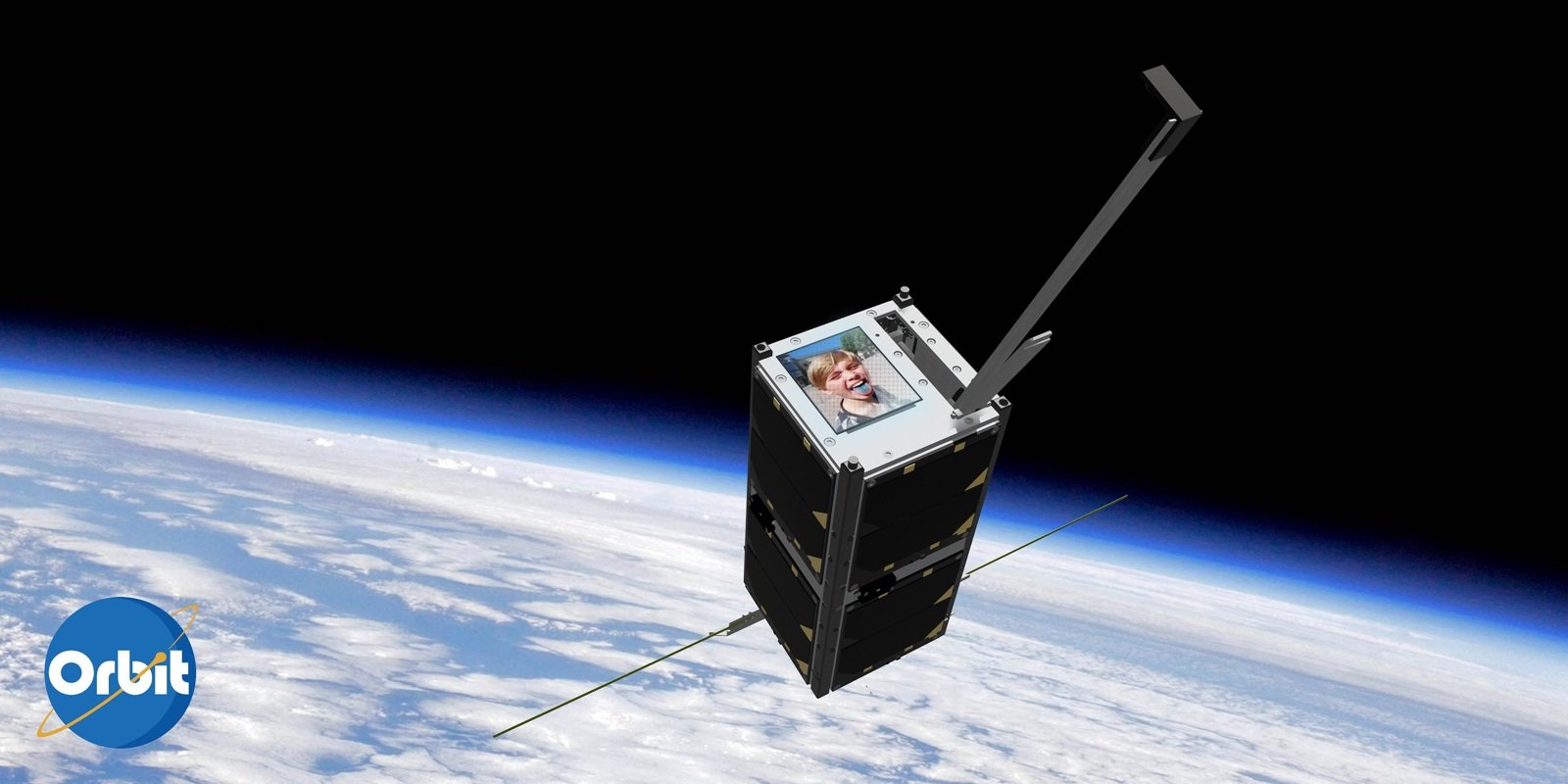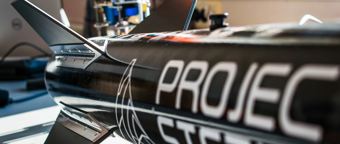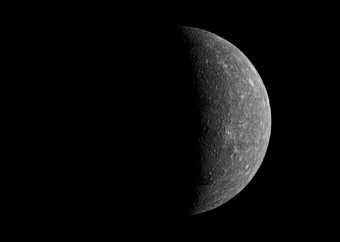
REAFFIRMS SUPPORT WITH STUDENT-LED SPACE ORGANIZATION
Earlier this year, Kongsberg Defence & Aerospace (KONGSBERG), together with Kongsberg Satellite Services (KSAT), reaffirmed their cooperation and increased its support for the student organization Orbit NTNU at the Norwegian University of Science and Technology (NTNU).
-
Text:Anita Nyheim
Photo:Orbit NTNU & Njål Frilseth / KONGSBERG
Orbit NTNU educates tomorrows’ space engineers, and the project team designs, builds and operates small satellites that will be launched into space. A few weeks ago they successfully launched their first satellite “SelfieSat”. It is important for KONGSBERG to continue its support of Norwegian students and student organizations like Orbit NTNU in order to strengthen the future of Norwegian space industry.
“We are very pleased that our new main sponsor is KONGSBERG, and cannot wait to work with them in the coming time. KONGSBERG has already provided us with test-facilities, resources, and technical support leading up to the SelfieSat-launch, and their continued support is essential to the success of our operations. We’re looking forward to having them with us on our future adventures,” says Ulrik Falk-Petersen, CEO of Orbit NTNU.

Orbit NTNU-team signs agreement with Kongsberg Defence & Aerospace and KSAT. Credit: Njål Frilseth /KONGSBERG
Selfies in space
Since 2018, Orbit NTNU has been working on its pilot project; the world’s first selfie taking satellite. SelfieSat is a 2U (10x10x20 cm) satellite (cubesat) aiming to explore new, technical boundaries by launching a screen into space and then take “selfies”. The external LCD-display displays pictures sent in by the public. A camera mounted on a measuring tape arm, photographs the screen with Earth in the background.
On May 25th at 20:27, «SelfieSat» was successfully launched on a Falcon 9 as part of the SpaceX Transporter-5 mission from Cape Canaveral Florida. This is the organization's first satellite in orbit around the earth and marks an important milestone for the Orbit project team.

Illustration of SelfieSat. Credit: Orbit NTNU
"Four years ago, all this was just a distant dream, and today we have actually launched our satellite to space. I am extremely proud of the work that Orbit's members have put in and I’m humble to be allowed to work with this group of competent fellow students,” says Andreas Westre, Project Manager for SelfieSat. He also sends his greetings to sponsors, mentors, professors and partners – “This would not have been possible without them”.
With KONGSBERG as their main sponsor, the Orbit team from NTNU are allowed access to perform environmental tests and receive production support free of charge at KONGSBERG facilities, provided that there is available capacity and it’s not preventing regular production. KONGSBERG has also agreed to contribute with available competence and consultancy, and to take part and contribute in technical design reviews if resources are available.
“We are proud sponsors of this amazingly talented group of students,” says Vidar Lande, Senior HR Advisor and responsible for the agreement from KONGSBERG. “We are eagerly following their next steps and hope this inspires other young people to see that it possible for anyone anywhere to engage with the space industry.”
The SelfieSat project aims to inspire and bring space a little closer, and show how accessible space has become for us all. “You don’t have to be an A-student or NASA astronaut to work with space,” says Falk-Petersen.

Team at Cape Canaveral Florida. Credit: Orbit NTNU
The satellite is now in a so-called LEOP phase: Launch and Early Operations. The organization's operations team is working to contact the satellite for the first time, and first contact is expected to take place in the coming weeks. SelfieSat will then be operated by the student team through their own ground station, a radio tower in Trondheim, Norway, where they will send and receive space-selfies, status updates, and positioning information at regular intervals. The students will also handle all commands and tasks of the satellite.
The final orbit of SelfieSat will be a LEO (Low Earth Orbit) in area 530-558 km. After being launched into space, SelfieSat will be moved to proper trajectory of a Momentus Vigoride. Vigorides are spacecraft that carry satellites and payloads between orbits in space.
The project team at Orbit NTNU learns from the industry - at the same time as they innovate and build the most cost-effective satellites. This is done by using commercial parts meant for regular consumers and verify them for space themselves. They build and run their own test facilities, enabling frequent hardware development while performing professional tests to verify functionality in space, with their partners and sponsors. This gives the team members unique expertise in the entire development of satellites - from idea to development, production, launch and operation.
FRAMSat-1 - bleeding-edge Norwegian technology
During the last year, Orbit NTNU has also developed its first side project, called FRAMSat-1, a cooperation between Norwegian Space center, Andøya Space, NTNU and Eidsvoll Electronics. The FRAMSat mission is a satellite-based platform to demonstrate the tech of bleeding-edge Norwegian technology.
The FRAMSat-1 launch campaign is arguably the most important satellite in modern Norwegian space-history. The satellite will be the first satellite to reach orbit from European soil, putting Orbit NTNU in a position to revolutionize the way we think about satellites and spark interest and engagement on an international scale.
FRAMSat-1 is scheduled to be completed after the summer and to be launched from Andøya in Norway during the first quarter of 2023.

Launch of SelfieSat, Falcon 9 as part of the SpaceX Transporter-5 mission from Cape Canaveral Florida.Credit: Orbit NTNU


